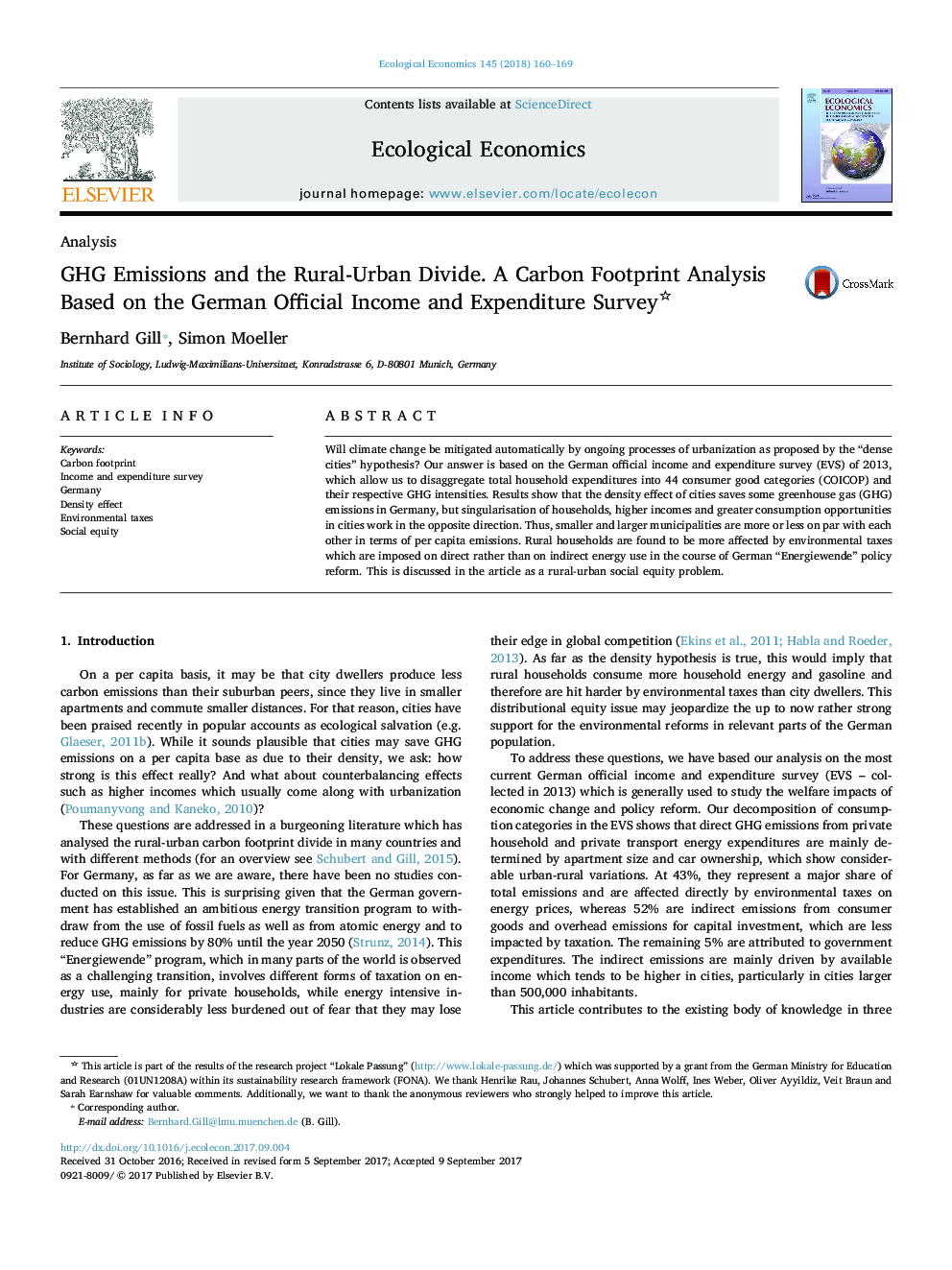| Article ID | Journal | Published Year | Pages | File Type |
|---|---|---|---|---|
| 5048602 | Ecological Economics | 2018 | 10 Pages |
Abstract
Will climate change be mitigated automatically by ongoing processes of urbanization as proposed by the “dense cities” hypothesis? Our answer is based on the German official income and expenditure survey (EVS) of 2013, which allow us to disaggregate total household expenditures into 44 consumer good categories (COICOP) and their respective GHG intensities. Results show that the density effect of cities saves some greenhouse gas (GHG) emissions in Germany, but singularisation of households, higher incomes and greater consumption opportunities in cities work in the opposite direction. Thus, smaller and larger municipalities are more or less on par with each other in terms of per capita emissions. Rural households are found to be more affected by environmental taxes which are imposed on direct rather than on indirect energy use in the course of German “Energiewende” policy reform. This is discussed in the article as a rural-urban social equity problem.
Related Topics
Life Sciences
Agricultural and Biological Sciences
Ecology, Evolution, Behavior and Systematics
Authors
Bernhard Gill, Simon Moeller,
